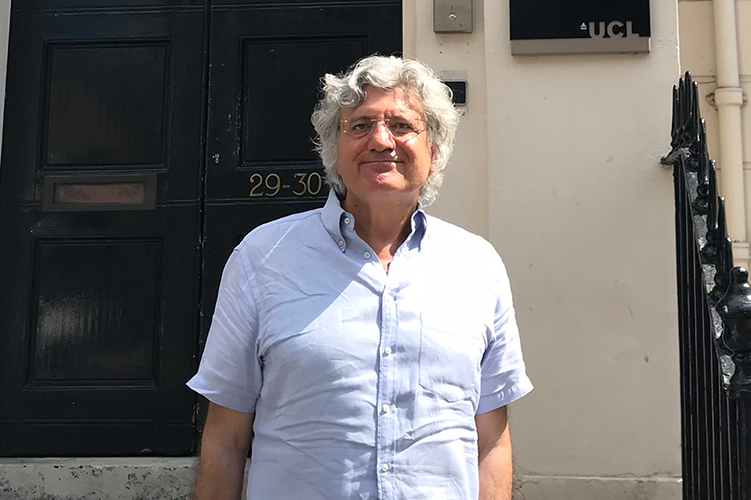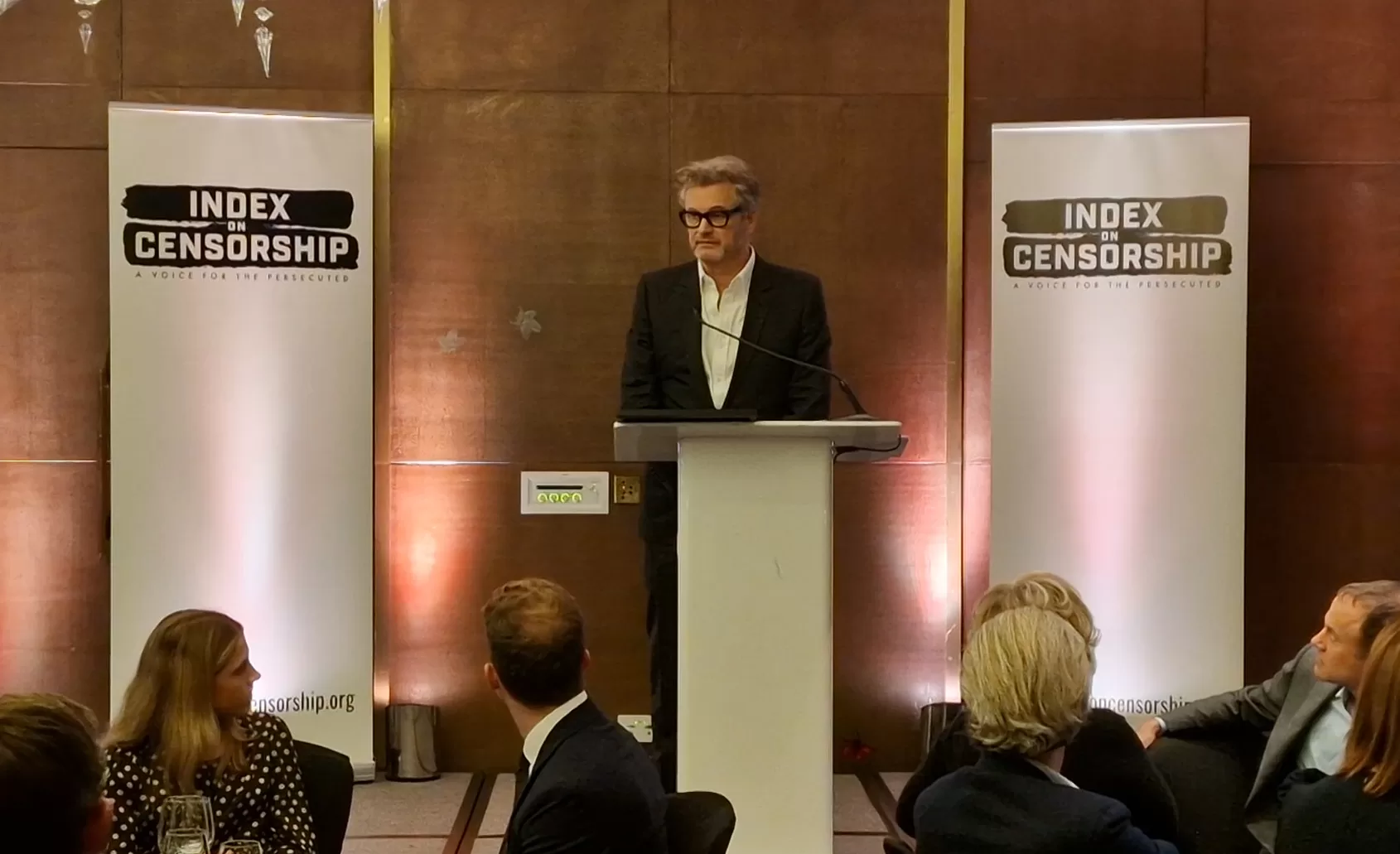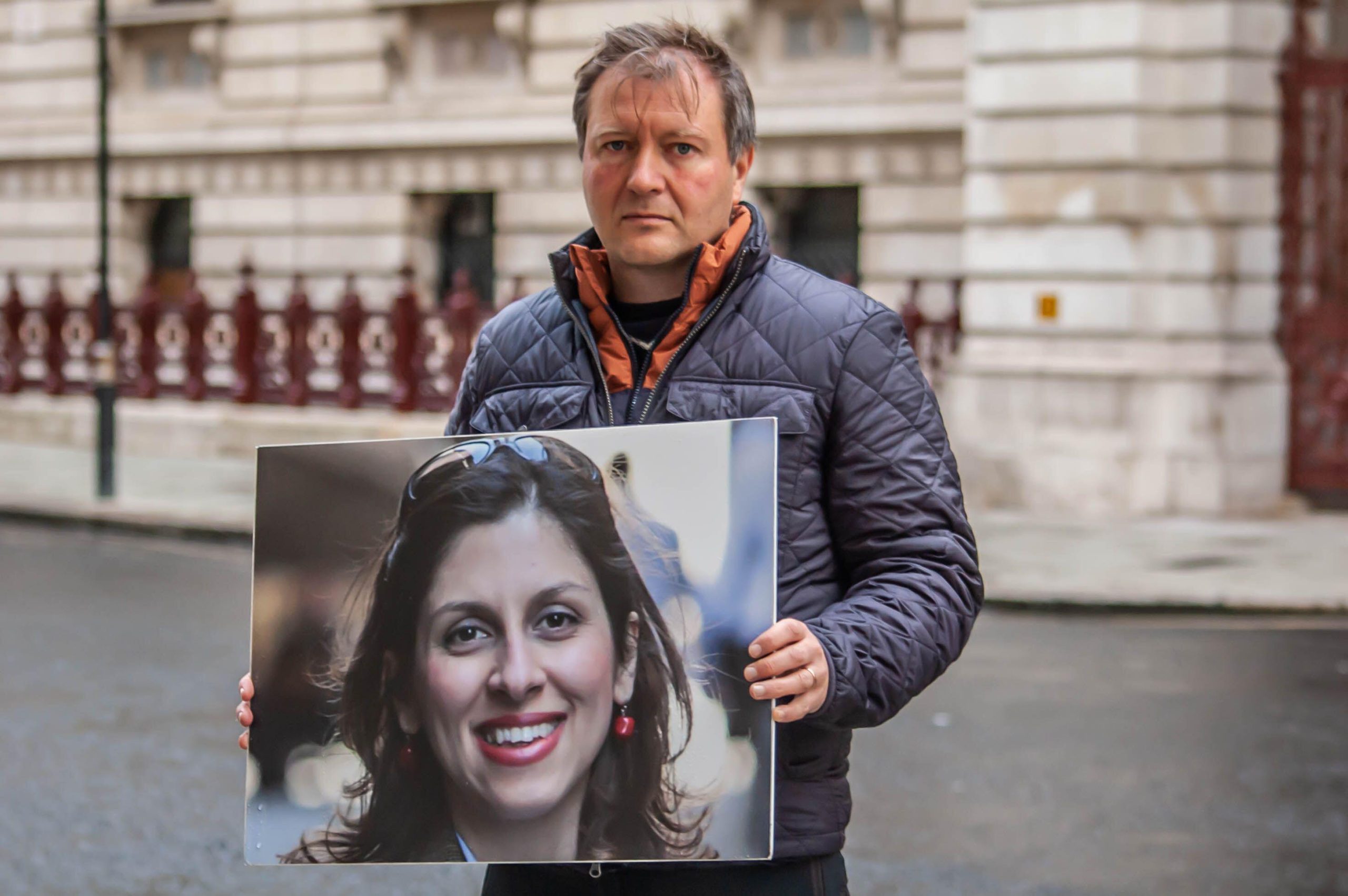[vc_row][vc_column][vc_single_image image=”101526″ img_size=”full” add_caption=”yes”][vc_column_text]
Naif Bezwan cannot pinpoint a certain moment in his life in which he decided to pursue academia. For Bezwan, rather, it has been a gradual process of situating his personal narrative within the context of his Kurdish community, within Turkey and within the world.
Bezwan, currently Honorary Senior fellow at UCL Department of Political Science, was born in Diyarbakir, one of the largest cities in southeastern Turkey. A focal point of conflicts between the Turkish government and insurgent groups, the city has a strong tradition of Kurdish liberation movement. Growing up, Bezwan heard the stories of previous generations, including those of his grandparents and relatives, about how they were repressed by the Turkish state. The trajectory of his academic interests was further shaped by his commitment to the universal human struggle for freedom and equality, as well as his determination for democratic reforms through rigorous inquiry. Several areas of his research and teaching expertise include Turkey’s policy towards Kurds and the Kurdish quest for self-rule.
It is not difficult to understand Bezwan’s motivation behind signing the Academics for Peace petition in January 2016. 1,128 academics from 89 universities in Turkey signed the petition, calling on the Turkish government to end its military operations in the Kurdish region and establish negotiations. This peaceful dissent emphatically rejected violence and yet, the signatories were detained and put under investigation. If found guilty of alleged terrorism charges, the petitioners could face between one and five years in prison.
After signing the petition with 37 colleagues from Mardin Artuklu University, Bezwan faced a disciplinary investigation in February 2016. A second investigation was launched just a few months later, in August 2016, after comments he made about the Turkish military incursion in Cerablus, Syria. This time, however, the consequences were even more severe, unjust and absurd.
The interview with the Turkish daily Evrensel was related to the core areas of his academic interests and expertise. Bezwan stressed the danger of using military forces at home and abroad in dealing with Kurdish rights and demands. He was immediately suspended from his position at Mardin Artuklu University, where he was teaching at the time, and completely dismissed through an emergency decree issued in September 2016.
Being deprived of teaching, conducting research or holding any public position, with the possible consequences of signing the Academics for Peace petition hanging over his head, Bezwan felt he had no choice but to leave his life in Turkey for London in November 2016. After almost a year of living in exile, Bezwan became a CARA (the Council for At-Risk Academics) fellow at UCL from June 2017 to June 2018.
Bezwan spoke with Long Dang of Index on Censorship about the events that transpired, his life in the UK, and his vision for Turkey’s future.
Index: What motivated you to become an academic?
Naif Bezwan: I could not really remember a certain point in my biographical trajectories in which I decided to become an academic, let alone pursuing an academic career. The idea of pursuing a career in academia has not been considered something worthwhile and esteemed by my generation of Kurdish and Turkish leftist intellectuals growing up under the brutal military rule in the 1980s. Quite the contrary, embarking on individualistic remedies was seen as a kind of opportunistic behaviour to save your skin, as it were, at the expense of a cause greater than yourself. So I think it has really been a process of gradual becoming rather than a decision at a certain point in time to be an academic. Having said that, it has nonetheless been a clear and conscious orientation towards, and commitment to, certain values, such as democracy, social change, justice, equality and self-determination that motivated us greatly. This motivation, I remember vividly, went hand in hand with an insatiable curiosity about the human condition, history, philosophy, as well as about the situation and destiny of your own society. All this was coupled with a pronounced sense of agency and responsibility for transforming what we perceive to contradict human dignity and freedom. Ultimately, it has been this intensive search for understanding of what has been in the past, as well as for what human dignity and flourishing requires, that led me to become an “academic”, or more precisely, an expelled one.
Index: Why did you become interested in working on Turkey’s Kurdish conflict ?
Naif Bezwan: First, as I indicated, it has been due to the life-world in which my political, cultural and intellectual socialisation, dispositions and positions were coming into being and shaped. I was born in a region of Kurdistan in Turkey, in Diyarbakir, where the Kurdish liberation movement has traditionally been very strong, where an awareness of being member of a distinct society is widespread, where interest in politics, culture and world affairs was distinctively strong. Second, I was raised in a family in which memories of brutal repressions of previous Kurdish generations by the Turkish state, including members of my family, namely my grandfathers and their relatives, were kept alive – their engagements were upheld and their sufferings were told, retold and remembered. A third factor that seems to have formed my orientation during my youth was a growing influence of socialist ideas adopted and defended by various Kurdish organisations and movements throughout 1970s and later on. So all these factors have provided a background to my epistemological interest in working on Turkey and Kurdistan. My time and higher education in Germany during my first emigration, and now in London, have bestowed me with the kind of resources needed to study this problem in-depth from a comparative and historical perspective, and with a degree of freedom necessary to inquiry this complex subject-matter.
To study the various aspects of the Kurdish society and conflicts as a Kurdish scholar almost per se makes you suspicious in the eyes of Turkish state authorities and can lead to your expulsion and imprisonment, as has been the case for many scholars over the years. But it can unfortunately also have consequences of a different kind even in Western countries, such as being branded as biased because of your Kurdish identity or being asked not to criticise the repressive policies leading up to your expulsion and emigration.
Index: On January 2016, 1128 academics signed a petition, entitled “We will not be a party to this crime”, demanding the Turkish government to end military oppression against the Kurdish population. What were your reasons for signing the petition? Were they professional or personal?
Naif Bezwan: It was a combination of both. There was a brutal ongoing war against the Kurdish population, a war whose effects we felt in our daily lives and the lives of our students. I was working at Mardin Artuklu University, which is located at the heart of the Kurdish region at the border between Turkey and Syria. I excruciatingly remember how young people and soldiers were killed everyday, lives and livelihoods destroyed as a result of the termination of the peace process by the government in the summer of 2015. I could not simply stand by and see all these atrocities while the whole community was being destroyed – my students and the people I knew were very affected by this policy of destruction. That is why I signed the petition, knowing that possible severe consequences would be arising from it.
Index: The petition called for a peaceful settlement between the government and the Kurdish population, and yet the government termed it “terrorism”. You were first suspended from your position because of a critical interview on the Turkish military incursion into Syria in August 2016. How do these incidents speak to the government’s system of oppression?
Naif Bezwan: I was suspended from my position for giving the interview with the Turkish Daily National. As an academic for International Relations and Political Science with a specific focus on Turkish domestic politics, political system, foreign policy and Kurdish issue, I argued that the Kurdish issue was essentially entrenched within Turkey, which meant that security would not be possible through more invasion or use of military violence internally and externally. The way to solve the problem, I stressed, was to return to the peace process which had been broken by the government. Only a couple of hours following the interview’s publication, I was called by the faculty administration to be handed down an official document. Upon my arrival, I was given a letter. This letter, in which a reference was made to the interview, was nothing but an order for my suspension that had been signed by the rector of the University. So I was immediately suspended from my position and then requested to give my defence as to why I gave the interview. In my defence, I emphasised that the interview was related to the core area of my expertise, and that suspension of academics and suppression of free speech cannot be the way in which academics arguments should be exchanged and universities function. My assessment, I added, might have been wrong or problematic. If so, however, it should have been responded through counterarguments instead of punitive measures. I have not yet been notified of the outcome of the administrative inquiry, but instead have been completely expelled from my position and public service through a decree-law in September 2016.
Index: Could you describe the hostile environment in Turkey after the failed coup attempt of July 2016?
Naif Bezwan: The coup attempt was a vicious attempt against democracy, but the government used it as the pretext to extend the dimension and size of oppression. In the aftermath of the failed coup, Erdogan said something very treacherously revealing – he depicted the coup as a kind of blessing. Why was it so? Well, this “blessing” was used first to intimidate the whole range of oppression, and second to consolidate his power. It was clear that it would be difficult to live in the country and therefore my partner and I decided to leave the country for the UK on 9th November 2016.
Index: How has life in the UK been for you?
Naif Bezwan: I think every form of forced exile contrary to freely chosen ways of immigration in search for a better life is painful. You are all of a sudden cut off from many things that make your life meaningful – your work, your relationships, your friends and family. After having migrated from Turkey to Germany in 1991, I freely decided to return to Turkey in January 2014, in the hope of doing something meaningful. I had just settled down and once again I was compelled to leave the country. The choice I had to make was between going into a new exile or being deprived of many things and activities that defined me and my way of life.
Being confronted with a forced immigration, one also needs to look on the bright side, try to create new possibilities and involve oneself in activities that would give meaning to one’s life again. In June 2017, almost a year after my arrival in London, I was granted the CARA fellowship at the Department of Political Science at UCL. Thanks to the fellowship, I was able to more systematically and continuously work and promote my studies and public engagement. I have completed two academic articles during the first months of my fellowship. I have been able to do a lot of research and participate in many academic conferences. In a group of other academics and friends, I became involved in establishing a London-based charity, the Centre for Democracy and Peace Research, which provides substantial support for our friends and colleagues back home. In all, being in the UK has been an uplifting opportunity, allowing me to continue with my studies and with my life.
Index: What is your perspective on the newly-expanded powers of Erdogan and their implications for the freedom of academics? What sort of support do you think is necessary for freedom movements to gain momentum? Could momentum be gained from within the country, or is some form of international intervention fundamental?
Naif Bezwan: As far as the character of the new regime is concerned, I think we have to keep in mind that the constitutional changes that introduced the new government system was made under a state of emergency. Opposition was silenced and intimidated, and there was no free press or free speech. This is very indicative of the character of the current regime. It is essentially an authoritarian, autocratic regime based on arbitrariness, with severe restrictions on free speech and a range of repressive policies at its disposal. For example, just three days before Erdogan was sworn in as president, there was an emergency decree through which about 18,000 civil servants, including academics, were dismissed. The message that the government wants to send is: we celebrate our victory through the intimidation and suppression of people, depriving them of basic rights, of the basis for life in dignity and freedom.
Given the nature of the current regime, two major outcomes seem to be possible. First, if there is a convergence between the parliament majority and president, which is currently the case, it would allow the president to exercise a constitutional dictatorship, in which the president can act in absolutely unbounded manners, since the dictatorial exercise of state authority is grounded in the very nature of the constitution itself. The current regime is authoritarian and autocratic in character, based on and emerged out of, extensive policies of intimidation, expulsion, fear and war-mongering. The other option would be a divergence between the parliament majority and president, which would result in an illiberal, dysfunctional regime. So: we had a choice between two equally undemocratic, unreasonable and repressive ways of governing the country. What makes things even worse is the fact that the Nationalist Movement Party (MHP) – the far-right, anti-kurdish, anti-western, utterly racist party – now provides the president and his new regime with the necessary majority.
Given the fact that the country is increasingly becoming a big prison for the Kurds, minority groups, academics and critical voices, the work of the Kurdish and Turkish diaspora, as well as the support of the international community, is essential to strengthening democratic opposition and forces of transformation in the country. Due to the monopolization of the press in Turkey by the government, critics have no free space for acting and organizing themselves. This is why it is so important for organizations like Index to give voice to the people, their suffering and their resistance, in Turkey and beyond.
Index: Do you have hope that you will be able to return to Turkey, and pick up from where you left off?
Naif Bezwan: Going through all this process and being affected by it make you perhaps particularly sensible to the injustices directed at other people. I feel it incumbent upon me to do more academic work and be even more involved in civic duties to change the current situation and the utterly repressive regime. It is not an easy task at all. It requires patience and perseverance on the one hand, and creativity, solidarity and imagination on the other to generate new alternatives. I feel a responsibility to contribute the realising democratic and peaceful conditions in Kurdistan, Turkey and beyond.
[/vc_column_text][/vc_column][/vc_row][vc_row full_width=”stretch_row_content”][vc_column][three_column_post title=”Academic Freedom” full_width_heading=”true” category_id=”8843″][/vc_column][/vc_row]





